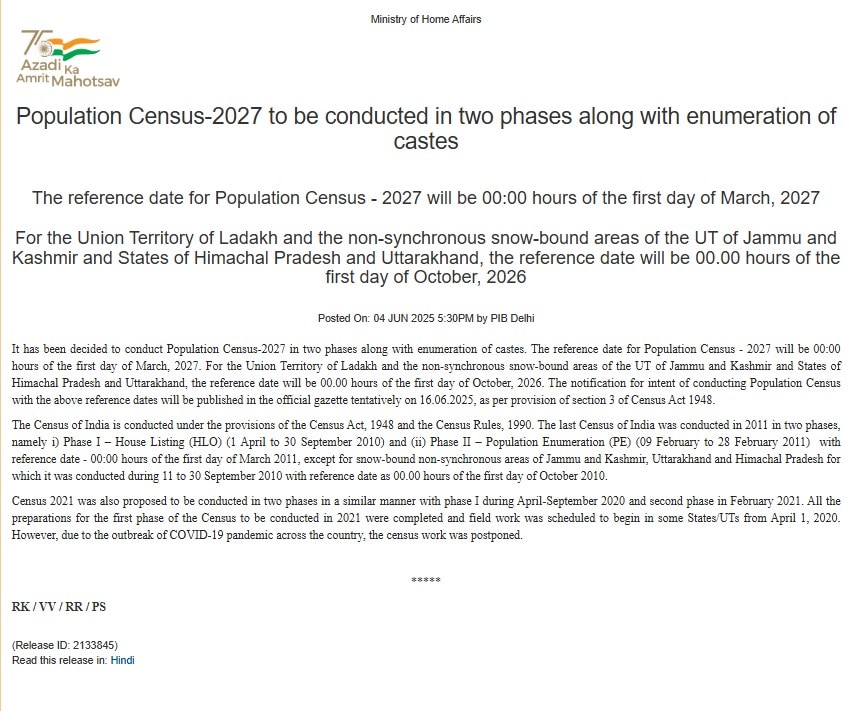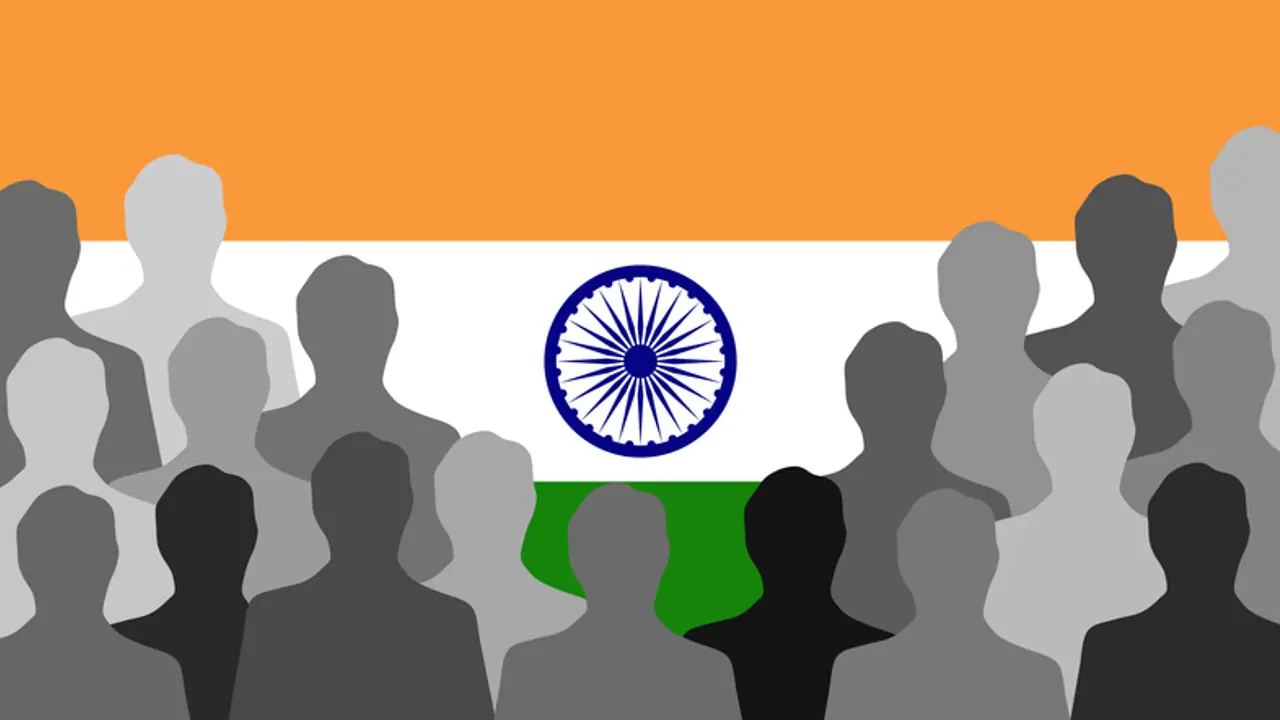India will begin its national population and caste census reportedly from March 1, 2027, after a 17-year gap. In hilly regions like Ladakh and Uttarakhand, the census will start earlier in October 2026.
India is set to carry out its long-delayed population census in two phases, starting March 1, 2027, the first such exercise in 17 years. According to government sources, the upcoming census will also include caste enumeration for the first time since independence.


The census will begin earlier in some states due to weather conditions. In high-altitude regions like Ladakh, Jammu and Kashmir, Himachal Pradesh, and Uttarakhand, the process will start on October 1, 2026.
Census 2027 to begin in two phases
The Ministry of Home Affairs has announced that India’s Population Census 2027 will be conducted in two phases, with caste enumeration included for the first time. The reference date for most of the country will be 00:00 hours on March 1, 2027. However, in the Union Territory of Ladakh and the snow-bound areas of Jammu and Kashmir, Himachal Pradesh, and Uttarakhand, the reference date will be 00:00 hours on October 1, 2026.
Census to include caste data
On April 30, the Cabinet Committee on Political Affairs (CCPA), chaired by Prime Minister Narendra Modi, gave its approval to integrate caste-based data collection in the 2027 census. This move comes after growing demands from both the Opposition and allies of the ruling NDA coalition.
Parties such as the Congress, Janata Dal (United), Lok Janshakti Party, and other regional groups have consistently pushed for a caste census, claiming it is vital for effective policymaking, targeted welfare schemes, and addressing social inequalities.
Delay after 2011
India’s last census was conducted in 2011. The scheduled 2021 census was postponed due to the COVID-19 pandemic and administrative delays. The new date now pushes the decadal exercise by nearly six years.
With caste data being officially collected alongside population numbers, the 2027 census is expected to shape future policy, political discourse, and welfare schemes in a significant way.

